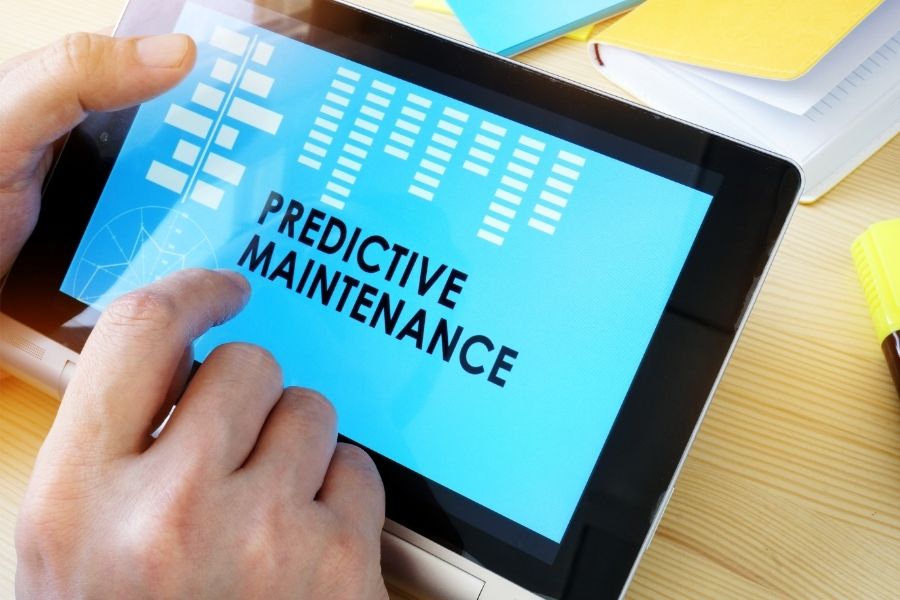The property management landscape in Wellington is evolving rapidly, with artificial intelligence (AI) at the forefront of this transformation.
At Taylor Property Plus, we understand that embracing new technology is critical to delivering the best possible service to landlords and tenants throughout the wider Wellington region.
While we may not be using every tool on the market, our commitment to innovation and excellence ensures we stay ahead of the curve, especially when it comes to AI-powered maintenance.
Table of Contents
How AI Predicts Maintenance Issues Before They Occur
Traditionally, property maintenance has been reactive: a problem arises, a tenant reports it, and repairs are scheduled. This approach, while familiar, often leads to higher costs, more frequent emergencies, and dissatisfied tenants. AI-driven predictive maintenance is changing this paradigm by enabling property managers to anticipate issues before they escalate.
AI systems work by collecting and analysing vast amounts of data from various sources within a property, such as IoT sensors, historical maintenance records, and equipment performance metrics. For example, sensors embedded in HVAC systems, lifts, or plumbing can continuously monitor for subtle changes in vibration, temperature, or water flow. AI algorithms process this data in real time, identifying patterns and anomalies that signal potential failures.
Consider a scenario where an AI system detects a gradual increase in energy consumption or unusual noise from a building’s heating unit. Rather than waiting for a breakdown, the system issues an alert, allowing property managers to schedule preventative maintenance. This proactive approach not only prevents costly repairs but also minimises disruption for tenants.
Benefits of Predictive Maintenance
Cost Savings
Predictive maintenance significantly reduces the frequency and severity of emergency repairs, which are often the most expensive and disruptive. By addressing issues early, property managers can optimise maintenance budgets, extend the lifespan of critical assets, and avoid the budgetary “black holes” that come with repeated, last-minute fixes. Over time, this data-driven approach builds a comprehensive maintenance history for each property, turning guesswork into a long-term strategy.
Tenant Satisfaction
Tenants expect their homes to be comfortable, safe, and well-maintained. AI-powered maintenance enhances tenant satisfaction by minimising unexpected breakdowns and ensuring that repairs are handled promptly and efficiently. Automated tenant communication tools—such as AI-powered chatbots—can provide instant updates on maintenance requests, answer common questions, and keep tenants informed throughout the process. This responsiveness fosters trust and encourages longer tenancies.

Operational Efficiency
AI-driven solutions automate routine tasks, streamline workflows, and free up property managers to focus on higher-value activities. For example, AI can cluster recurring complaints, schedule repairs during off-peak hours, and even recommend when to repurpose older equipment rather than replace it outright. This level of efficiency is essential for managing multiple properties or large portfolios.
Regulatory Compliance
In a market where compliance standards are continually evolving, AI can help ensure that properties meet all legal and safety requirements. Automated reminders for inspections, safety checks, and regulatory updates reduce the risk of non-compliance and associated penalties.
Examples of AI-Powered Maintenance Tools
The market for AI-driven maintenance solutions is expanding rapidly, with a range of tools now available to property managers:
- IoT Sensor Networks: Devices installed throughout a property monitor everything from temperature and humidity to vibration and water flow. These sensors feed data into AI platforms that analyse trends and detect anomalies.
- Predictive Analytics Platforms: Software such as IBM Maximo, Building Engines, and Facilio use machine learning to forecast maintenance needs, schedule repairs, and optimise asset performance.
- AI Chatbots and Virtual Assistants: Tools like PropertyMe and Latchel automate tenant communications, handle maintenance requests, and provide real-time status updates.
- Smart Building Management Systems: These platforms integrate HVAC, lighting, security, and other systems, enabling AI to optimise energy efficiency and occupant comfort while monitoring for maintenance issues.
- Automated Compliance Tracking: AI solutions can flag upcoming safety inspections, lease renewals, and regulatory changes, ensuring nothing falls through the cracks.
A practical example: In a multi-family apartment complex, AI-powered sensors in the lift system detect subtle changes in vibration that indicate wear and tear. The system alerts the property manager, who schedules maintenance during off-peak hours, preventing a costly breakdown and ensuring tenants aren’t inconvenienced.

Implementation Tips for Property Managers
Adopting AI-powered maintenance solutions requires thoughtful planning and a willingness to embrace change. Here are our top recommendations for property managers and landlords looking to integrate predictive maintenance into their operations:
1. Start with a Needs Assessment
Evaluate your current maintenance processes and identify areas where predictive solutions could have the greatest impact. Consider properties with recurring issues, high repair costs, or complex systems (like lifts or HVAC units).
2. Invest in the Right Technology
Choose AI tools that align with your portfolio size, property types, and budget. Start with pilot projects, such as installing IoT sensors in high-risk areas, and scale up as you see results. Look for platforms that integrate with your existing property management software.
3. Prioritise Data Collection
The effectiveness of AI depends on high-quality data. Ensure you have reliable records of past maintenance, equipment specifications, and property conditions. IoT sensors can provide real-time data, but historical records are equally valuable for training AI models.
4. Train Your Team
Successful implementation requires buy-in from your staff and contractors. Provide training on how to interpret AI-generated alerts, use new software, and respond to predictive maintenance recommendations. Encourage a culture of proactive problem-solving.
5. Communicate with Tenants
Let tenants know about new maintenance technologies and how they benefit from them, such as fewer disruptions and faster response times. Use AI-powered communication tools to keep tenants informed and engaged.
6. Monitor and Refine
Track the performance of your AI-powered maintenance initiatives. Monitor key metrics like repair frequency, costs, and tenant satisfaction. Use this data to refine your approach and expand predictive maintenance to additional properties.
7. Stay Informed
The field of AI in property management is evolving quickly. Stay up to date with the latest developments, attend industry webinars, and connect with technology providers to ensure your properties remain at the cutting edge.
Taylor Property Plus: Embracing the Future of Property Management
At Taylor Property Plus, our decades of experience managing Wellington properties have taught us that innovation is essential for delivering exceptional service. While we may not implement every AI tool available, our commitment to embracing change means we are always exploring new ways to enhance efficiency, reduce costs, and improve the living experience for tenants.
AI-powered maintenance is more than a trend—it’s a revolution in how properties are cared for and how value is delivered to landlords and tenants alike. By adopting predictive solutions, Wellington property managers can move from reactive firefighting to proactive stewardship, ensuring that every property in their portfolio is maintained to the highest standard.
If you’re a landlord or property manager interested in learning more about integrating AI-powered solutions into your operations, we invite you to connect with our team. Together, we can build a smarter, more sustainable future for Wellington’s rental market.
For more insights on sustainable property management, energy-efficient upgrades, and how technology is shaping the Wellington rental sector, explore our previous posts in this series. Stay tuned as we continue to share expert advice and practical solutions for property owners and managers across the region.



